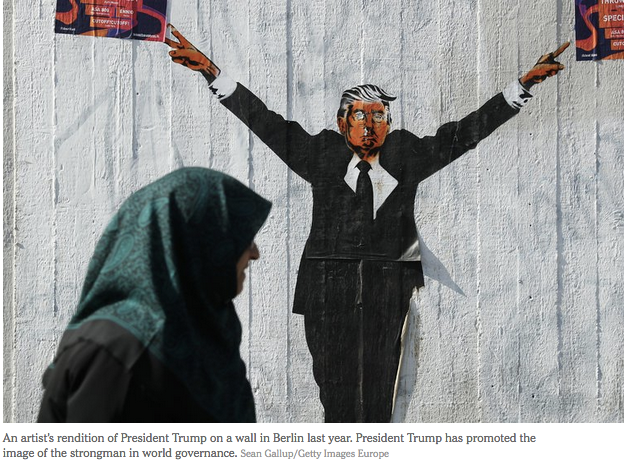PARIS — On Nov. 9, 2016, when we Europeans woke up to the news of Donald Trump’s election as president of the United States, most of us understood that it would have a significant impact on world politics. What we did not realize at the time was how much that event would alter the basic fabric of international relations.
Over the past 16 months, we have been through roughly three stages in dealing with the fact that our first ally, the United States of America, is ruled by such an unorthodox president. We began by betting on human wisdom and political realism: Soon enough, Donald Trump, the nationalist, populist candidate, would wise up and become President Trump. Maverick politicians tend to do this in democratic societies.
Then came the “adults in the room” stage. When it became clear that there was no wising up in the Oval Office, we were led to believe that fortunately, the celebrated checks and balances of the American system were functioning. The toxic Steve Bannon would soon be on his way out. Some experienced, reliable generals were taking over; their advice would prevail. How would official Washington have reacted if generals were appointed to key posts in a French or German government? Not warmly, one suspects. But these being no ordinary times, Europeans went along with the idea.
For those who still bought it, the “adults in the room” theory took a serious beating last month at the Munich Security Conference, an annual gathering of top dogs in foreign and defense policy. Defense Secretary Jim Mattis came, but surprisingly did not take the floor. Gen. H. R. McMaster, the national security adviser, did speak but was very publicly chided a few hours later by a presidential tweet because he “forgot” to say that Russian interference had no impact on Mr. Trump’s election.
Senior European officials admit that however good their cooperation may be with counterparts in the Trump administration, the president’s unpredictability looms too large over decision-making. We have now entered the third stage of the great European disbelief. It could be called the “Angela Merkel was right” stage, in a nod to the German chancellor’s statement after the NATO and Group of 7 meetings last May that “we Europeans must really take our destiny into our own hands.”




